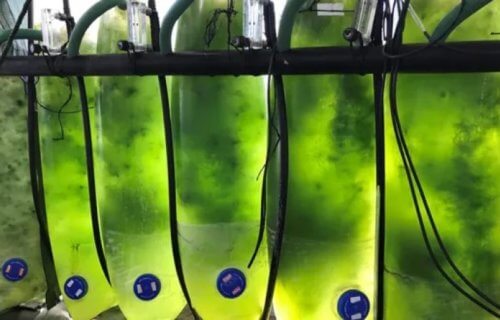TEL AVIV, Israel — A substance in edible marine algae — or seaweed — is capable of blocking COVID-19 from infecting the cells, a new study reveals. Researchers at Tel Aviv University say “ulvan” may provide scientists with a new weapon in the fight to end the pandemic.
The team adds that this seaweed extract is an affordable and natural material which can solve the problem of limited vaccine access in certain countries. Research into ulvan is still in the early stages, but study authors are hopeful their discovery will lead to a new drug that can stop new COVID variants from spreading.
“It is already clear today that the coronavirus vaccine alone, despite its effectiveness, will not be able to prevent the global spread of the pandemic. As long as the lack of access to vaccines remains unaddressed for billions of people in underprivileged communities, the virus is expected to develop increasingly more variants, which may be resistant to vaccines – and the war against the virus will continue,” says Prof. Alexander Golberg from the Porter School of the Environment and Earth Sciences in a university release.
“It is very important to find affordable and accessible solutions to suit even economically weak populations in developing countries. With this aim, our lab tested a substance that could be extracted from a common seaweed. Ulvan is extracted from marine algae called Ulva, an edible ‘sea lettuce’ common in places like Japan, New Zealand and Hawaii,” Golberg adds.

Ulvan has a strong track record with other viruses
Golberg’s team began looking at ulvan as a COVID defense after previous studies found that the seaweed extract could effectively prevent viruses from killing plants. It can even block infection from some human viruses as well.
TAU researchers started by extracting ulvan from Ulva algae and sending it to the Southern Research Institute in Alabama. A team at the infectious disease lab created a laboratory model to examine cells exposed to coronavirus.
Results show that, in the presence of ulvan, the SARS-CoV-2 virus could not infect cells. Other algae extracts did not show the same ability to block out a coronavirus infection. The next step will be to see if scientists can work out a formula that works in actual human patients.
“The substance was produced in raw production, meaning it is a mixture of many natural substances, and we must find out which one is responsible for preventing cellular infection. After that, we will have to examine how, if at all, it works in humans,” study authors conclude.
The study is published in the journal PeerJ.
